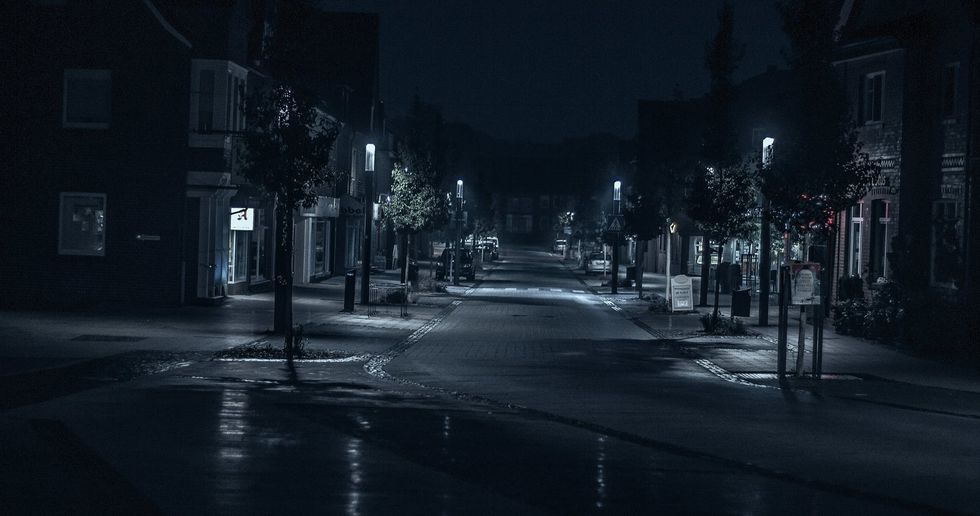"I have been one acquainted with the night.
I have walked out in rain—and back in rain.
I have outwalked the furthest city light."
In this article, I will unpack and apply another Robert Frost classic, "Acquainted with the Night." It is one of the saddest Robert Frost poems, one that is very often interpreted to deal with issues like depression and suicide. "I have been one acquainted with the night," indicates a person familiar with the night's darkness, of having a lack of light present in their lives. The sun may also rise, but at the end of the day, darkness and the night will win. The night means death, and is an acknowledgment that all of us will one day die, and be acquainted with the night. To be acquainted with the night means to be acquainted with death.
The narrator next says that "I have walked out in rain - and back in rain," suggesting that he has been through a fair deal of horror in his life. Chilly detached, he has found darkness, and perpetual darkness almost everywhere he goes, almost numbed to the "furthest city light." The narrator's adverse circumstances show that any further circumstance means nothing to him, that he has been through so much that he is numb, and almost immune to anything else that may phase him. He is at peace, much more so than any person we know.
"I have looked down the saddest city lane.
I have passed by the watchman on his beat
And dropped my eyes, unwilling to explain."
The narrator further compounds upon his weary peace, that he has been through "the saddest city lane." Emotions like guilt and shame are pervasive in his mind, as any person he walks past, like the watchman, is "unwilling to explain" these emotions. He drops his eyes constantly, staring down at the ground that there are no explanations for the situation or behavior that the narrator finds himself in.
"I have stood still and stopped the sound of feet
When far away an interrupted cry
Came over houses from another street,"
It may be a misinterpretation, but I read that the narrator is somewhat of a pariah, a person that stops the sound of feet when he passes people by. He has been through some obscene tragedy that others cannot possibly comprehend, and thus try to avoid. I read him almost like protagonist Lee Chandler in Manchester by the Sea, who witnesses and is partially responsible for his two children dying in a house fire.
There is a voice that beckons at the narrator, that transcends houses and distance. The voice is a cry, that has strong emotion behind the urge, even if we don't know what it says. The voice doesn't want the narrator to take his life or just die. He is one acquainted with the night. He lives as if he's already dead.
"But not to call me back or say good-bye;
And further still at an unearthly height,
One luminary clock against the sky"
The voice doesn't tell the narrator to change anything, for the voice does not "call me back or say good-bye." It is a voice that urges the narrator to press on and keep living with the status quo, as painful as it may be, and as much as the narrator himself may not want to keep on going on.
The luminary clock against the sky is the only light we see in this poem, the only light in the middle of the night. It is almost holy or biblical, what the narrator looks to for guidance, as it isn't of the Earth. It is at an unearthly height, symbolizing almost heaven, but to say so is a stretch. The final two lines proceed like this:
"Proclaimed the time was neither wrong nor right.
I have been one acquainted with the night.
The world of the luminary clock at the unearthly height beckon at the narrator, but not yet. Maybe he could go to it, because the time is not wrong. But it's also not right, and that may mean that Robert Frost meant to impart a message that death never happens at a wrong time, nor a right time. It happens arbitrarily, when we expect it least.
The narrator is still someone who is "acquainted with the night," someone who is ready for death, no matter when or how it comes. He is at peace in ways that I even envy, in ways that allow him to live freely, one day at a time, not worrying about what tomorrow and the future hold. And so I say that I, too am one acquainted with the night. And that gives me the freedom to live without fear, with hope.









































